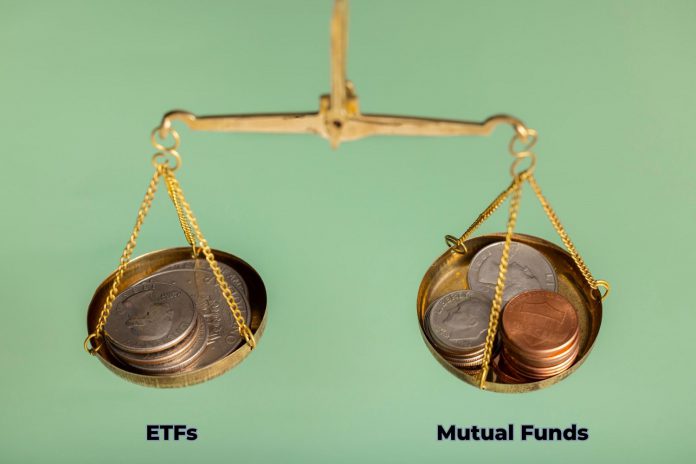We all know Mutual funds and ETFs are the ultimate investment duo. But we often get confused about where to park our money between the two. While both choices have their benefits, there is no single model for the right investment avenue. It is important to understand the nitty-gritty of both investment avenues to nominate the right one for your needs. Investing in mutual funds and exchange-traded funds (ETFs) is a popular way for retail investors to participate in the stock market without having to pick individual stocks. Both mutual funds and ETFs offer investors the opportunity to diversify their portfolios across a wide variety of asset classes, sectors, and geographies. However, there are some key differences between these two investment vehicles that you should be aware of before deciding which one is right for you.
- What are ETFs (Exchange Traded Funds)?
An exchange-traded fund (ETF) is a type of investment vehicle that tracks the performance of a specific index or benchmark. ETFs are traded on an exchange like a stock and can be bought and sold throughout the trading day. ETFs are priced based on the current market price of the fund’s holdings.
Advantages of ETF
- Low Fees
- Transparency
- Flexibility
- What are Mutual Funds?
A mutual fund is a pool of money collected from investors to purchase a portfolio of stocks, bonds, and other assets. It helps investors diversify their investments with lesser risk compared to individual stock picking. This mutual fund is managed by a professional fund manager who is responsible for buying and selling assets to achieve the fund’s investment objective.
Advantages of Mutual Funds
- Professional Management
- Diversification
- Liquidity
- Difference between an ETF and a Mutual Fund
| Mutual Funds | ETFs |
| ETFs can be actively bought and sold on exchanges, similar to individual stocks. | Mutual fund units can generally be purchased from the fund house or through authorized intermediaries. |
| ETF units can be purchased and sold anytime during market hours, at the prevailing market price. | While mutual fund units can be bought and sold anytime, the applicable NAV is determined as per the specified rules. |
| There is no minimum lock-in period for ETFs. | Mutual funds also don’t often have a minimum lock-in period. But there can be an exit fee called the exit load for early redemptions, as specified in the scheme. |
| ETFs are typically passively managed. | Mutual funds can be both active and passive, depending on their type and construct. |
Mutual Funds or ETF – Which is right for you
Deciding which investment vehicle is right for you depends on the following factors:
- Investment Goals– If your investment goal is to achieve long-term growth, mutual funds may be a better choice as compared to ETFs because they are actively managed by investment professionals who can make investment decisions to maximize returns
- Risk Tolerance– If you are a conservative investor who is looking for a diversified portfolio with less risk, mutual funds may be a better choice. If you are willing to take on more risk and are comfortable with more volatile investments, ETFs may be a better choice because they allow for greater flexibility.
- Investment Style– If you prefer a passive investment approach, ETFs may be a better choice because they track specific indices or benchmarks and do not require active management.
Bottom Line
Mutual funds often make sense for investing in obscure niches, including stocks of smaller foreign companies and complex yet potentially rewarding areas like market-neutral or long/short equity funds that feature esoteric risk/reward profiles. But in most situations and for most investors who want to keep things simple, ETFs, with their combination of low costs, ease of access, and emphasis on index tracking, may hold the edge.
Investing in mutual funds or ETFs can be a great way to diversify your portfolio and participate in the stock market. Both investment vehicles have their advantages and disadvantages, and the choice between mutual funds and ETFs ultimately depends on your individual investment goals, risk tolerance, and investment style. By understanding the differences between these two investment vehicles, you can make an informed decision and choose the investment vehicle that is right for you.




